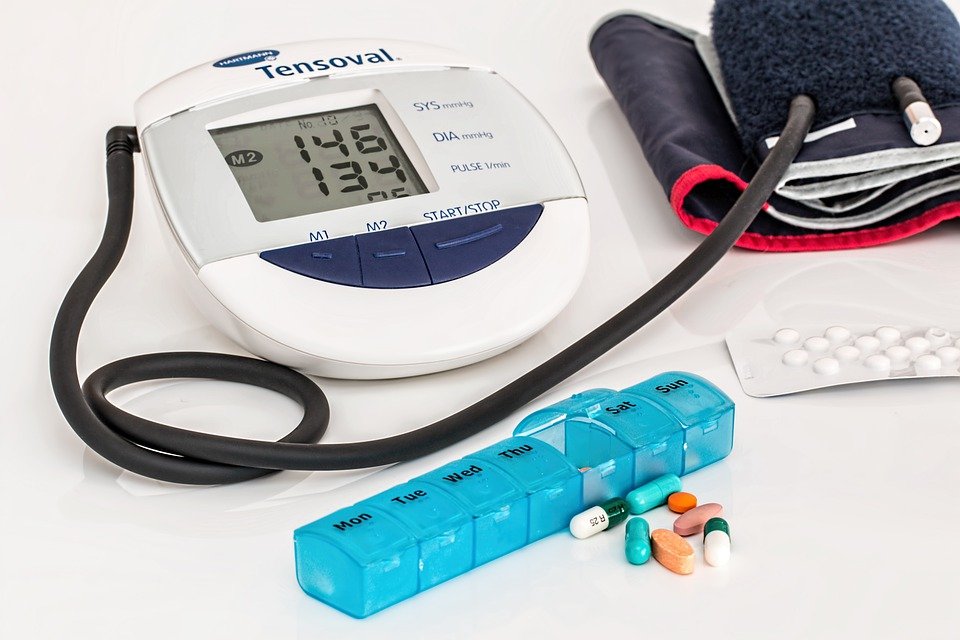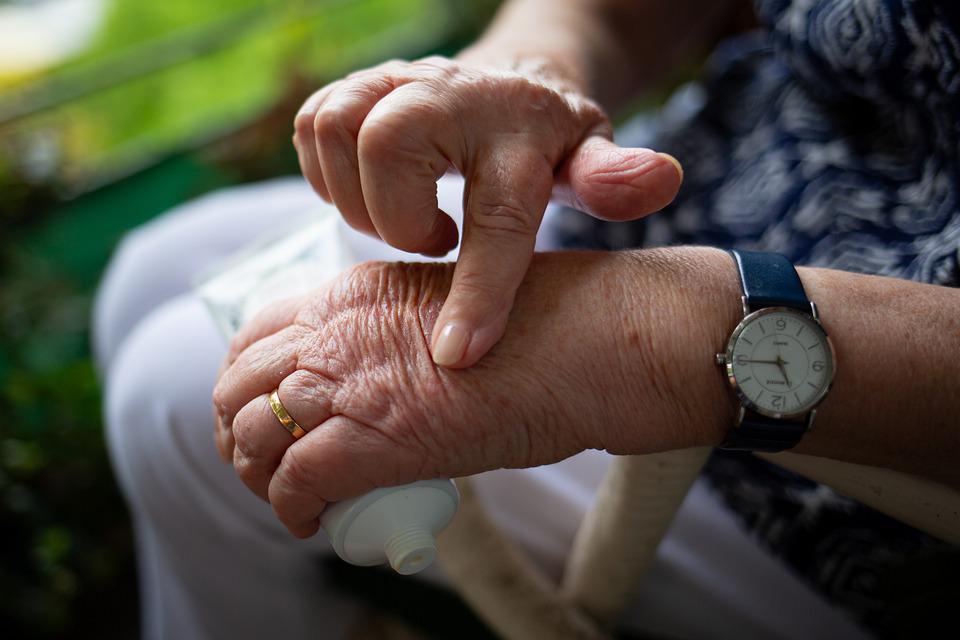
What is high blood pressure?
Narrow blood vessels require more force to push blood through them. The narrower your arteries are, the more difficult it is for blood to flow through them, and the higher your blood pressure will be. The increased pressure over time can lead to health problems such as heart disease.
Hypertension is quite common. The guidelines for diagnosing this condition changed in 2017, and now nearly half of the American adults can be diagnosed with it.
Hypertension typically develops over several years. Usually, you don’t notice any symptoms. If you don’t have any symptoms, you might still have high blood pressure, which can damage your blood vessels and organs, especially your brain, heart, eyes, and kidneys.
Early detection is important. If you take your blood pressure regularly, you and your doctor can identify any changes. Your doctor may have you check your blood pressure over a few weeks to see if the number stays elevated or falls back to normal levels if they find that your blood pressure is elevated.
Hypertension can be treated with a combination of prescription medication and lifestyle changes. If left untreated, the condition could result in a heart attack and stroke.
How to Understand Blood Pressure Readings
Blood pressure is measured in millimeters of mercury (mm Hg). The systolic number is recorded first, followed by the diastolic number.
Based on recent studies, the likelihood of dying from ischemic heart disease or stroke increases by 100% for every 20 mm Hg increase in systolic blood pressure or 10 mm Hg increase in diastolic blood pressure among people aged 40 to 89.
Blood pressure measurements fall into four general categories:
Normal Blood Pressure
If your blood pressure readings are below 120/80 mm Hg, then your blood pressure is considered to be normal. Even though you have been diagnosed with heart disease, you can still live a long and healthy life by following a few heart-healthy habits such as exercising regularly and eating a balanced diet.
Elevated Blood Pressure
If your blood pressure readings are consistently in the range of 120-129 systolic and less than 80 mm Hg diastolic, you have elevated blood pressure. If you do not make some lifestyle changes, you will probably develop high blood pressure. Some changes you can make are detailed below.
Hypertension Stage 1
If your blood pressure is consistently in the range of 130-139 systolic or 80-89 mm Hg diastolic, you have stage one hypertension. Your doctor will suggest lifestyle changes, such as those described below. The doctor may also prescribe blood pressure medication to help prevent cardiovascular disease, which could include heart attacks or strokes.
Hypertension Stage 2
If your blood pressure is 140/90 mm Hg or more consistently, you have stage two hypertension. Your doctor will prescribe blood pressure medications and lifestyle changes.
Hypertensive crisis
If your blood pressure is suddenly very high, you are experiencing a hypertensive crisis and should see your doctor right away. If you have high blood pressure and it comes with new symptoms like headache, blurred vision, chest pain, or nausea/vomiting, this is a hypertensive emergency. If you experience any of the following symptoms, it could be a sign of internal bleeding and you should seek medical attention immediately.
Risk Factors of High Blood Pressure
Most people with high blood pressure have what is called primary hypertension, which means that there is no other identifiable cause of their elevated blood pressure. Certain factors can increase your risk. Risk factors for hypertension are on the rise, so it’s estimated that the number of people with hypertension will increase by 8% between 2013 and 2030.
Risk factors for hypertension include:
Age
Your large arteries can become less flexible and lined with a plaque as you age. As we age, we become more likely to develop cardiac and vascular diseases. Your systolic blood pressure will steadily increase as you age due to these reasons.
Gender
Having high blood pressure is more common in men than in women. While hypertension rates are generally higher among men than women, this difference begins to narrow after age 54, and after age 64, women are more likely to have hypertension than men. As women age, their risk of high blood pressure increases.
Family History
If you have family members who have hypertension, you are more likely to develop hypertension yourself. Studies have found that many genetic variations are linked to hypertension, and many of these variants interact with environmental factors such as lifestyle choices.
Race
If you are African American, you are more likely to develop hypertension than Caucasians. Hypertension can be more severe for African Americans.
Lifestyle Factors
Your lifestyle can also heavily influence your risk of hypertension. If you are obese, eat a diet high in saturated fat, smoke, drink too much alcohol, and are physically inactive, your risk of high blood pressure increases. If a woman smokes and takes oral contraceptives, she is at a greater risk for hypertension.
What are the symptoms of hypertension?
Hypertension is generally a silent condition. Many people won’t experience any symptoms. It could take a long time for the condition to get worse and cause symptoms. While these symptoms may be attributed to other issues, they can also be indicative of a problem.
Symptoms of severe hypertension can include:
- flushing
- blood spots in the eyes (subconjunctival hemorrhage)
- dizziness
The American Heart Association states that severe hypertension does not typically cause nosebleeds or headaches, except in hypertensive crisis.
The best way to determine if you have hypertension is to get your blood pressure checked regularly. Doctors’ offices typically measure blood pressure at every visit.
If you only have a yearly physical, you should talk to your doctor about your risks for hypertension and other readings you may need to help you keep an eye on your blood pressure.
What causes high blood pressure?
Essential (primary) hypertension
Essential hypertension is also called primary hypertension. This kind of hypertension develops over time. Most people have this type of high blood pressure.
A combination of factors typically plays a role in the development of essential hypertension:
- Genes: Some people are genetically predisposed to hypertension. This may be from gene mutations or genetic abnormalities inherited from your parents.
- Age: Individuals over 65 years old are more at risk for hypertension.
- Race: Black non-Hispanic individuals have a higher incidence of hypertension.
- Living with obesity: Living with obesity can lead to a few cardiac issues, including hypertension.
- High alcohol consumption: Women who habitually have more than one drink per day, and men who have more than two drinks per day, maybe at an increased risk for hypertension.
- Living a very sedentary lifestlye: lowered levels of fitness have been connected to hypertension.
- Living with diabetes and/or metabolic syndrome: Individuals diagnosed with either diabetes or metabolic syndrome are at a higher risk of developing hypertension.
- high sodium intake: There’s a small association between daily high sodium intake (more than 1.5g a day) and hypertension.
Secondary hypertension
Secondary hypertension typically occurs more rapidly and can be more intense than primary hypertension. Several conditions that may cause secondary hypertension include:
- kidney disease
- obstructive sleep apnea
- congenital heart defects
- problems with your thyroid
- side effects of medications
- use of illegal drugs
- chronic consumption of alcohol
- adrenal gland problems
- certain endocrine tumors
Diagnosing high blood pressure
Doctors typically check their patients’ blood pressure as part of a routine visit. If you don’t have your blood pressure checked at your next appointment, ask the doctor or nurse to do it.
Your doctor may request that you have more readings over a few days or weeks if your blood pressure is elevated. A hypertension diagnosis is not usually given after just one reading.
Your doctor needs to see evidence that your problem is continuing and not just something that comes and goes. The environment you are in can affect your blood pressure, for example, if you are feeling stressed from being at the doctor’s office. Also, blood pressure levels change throughout the day.
If your blood pressure is still high after your first visit, your doctor will probably order more tests to see if there is an underlying condition. These tests can include:
- cholesterol screening and other blood tests
- test of your heart’s electrical activity with an electrocardiogram (EKG, sometimes referred to as an ECG)
- ultrasound of your heart or kidneys
- home blood pressure monitor to monitor your blood pressure over 24 hours at home
Assuming you have already been diagnosed with high blood pressure, these tests can help your doctor identify any additional factors that may be causing your condition. The effects of high blood pressure on organs can also be observed.
Your doctor may start treating your high blood pressure during this time. Early treatment may reduce your risk of lasting damage.
High Blood Pressure Treatment
High blood pressure affects approximately 50% of the population in America and is often left uncontrolled, which contributes to the high rates of cardiovascular disease. Your doctor may prescribe medications to bring your blood pressure down in order to treat your hypertension. Even if your blood pressure goes down, it is important to continue taking any prescribed drugs regularly and not stop without talking to your doctor first.
Your doctor will likely prescribe one or more of the following medications to treat high blood pressure:
- Thiazide diuretics: These ‘water pills’ work by helping your kidneys get rid of sodium and water through urination.
- Angiotensin-converting enzyme (ACE) inhibitors: These act to help relax your blood vessels by blocking the formation of a natural chemical (angiotensin) that narrows blood vessels.
- Angiotensin II receptor blockers (ARBs): These work by helping to relax your blood vessels by blocking the action of angiotensin that narrows blood vessels.
- Calcium channel blockers: These function by relaxing the muscles of your blood vessels and may also slow your heart rate.
If you are not achieving your blood pressure goal with the medications already mentioned, your doctor may prescribe additional medications. These include alpha-blockers, alpha-beta blockers, and beta blockers. Beta-blockers work by reducing the nerve impulses to your blood vessels and/or heart, which prevents your blood vessels from narrowing and your heart from overworking.
Your doctor may also want you to take drugs that prevent salt and fluid retention, or drugs that act directly on the muscles in the walls of your arteries, preventing the muscles from tightening and your arteries from narrowing.
Home remedies for high blood pressure
You can control the factors that cause hypertension by making healthy lifestyle changes. Here are some of the most common ones.
Developing a heart-healthy diet
If you are looking to reduce your high blood pressure, you should start by making sure you are following a heart-healthy diet. Along with other benefits, maintaining controlled hypertension reduces the likelihood of developing complications. These complications include heart disease, stroke, and heart attack.
A heart-healthy diet emphasizes:
- fruits
- vegetables
- whole grains
- lean proteins like fish
Increasing physical activity
Exercise can help you lose weight, lower blood pressure, and strengthen your cardiovascular system.
The goal is to get 150 minutes of moderate physical activity each week. That’s about 30 minutes, 5 times per week.
Reaching an optimal weight
If you are obese, you can help lower your blood pressure by losing weight through diet and exercise.
Managing stress
Exercise is a great way to manage stress. Other activities can also be helpful. These include:
- meditation
- deep breathing
- massage
- muscle relaxation
- yoga or tai chi
Getting adequate sleep may also help reduce stress levels.
Quitting smoking and limiting alcohol
If you are a smoker and you have high blood pressure, your doctor will probably tell you to stop smoking. The chemicals in tobacco smoke can damage the body, harden blood vessel walls, and cause other health problems.
If you have a problem with drinking too much alcohol, or if you’re addicted to alcohol, get help to cut down on how much you drink, or to stop drinking completely. Drinking alcohol in excess can raise blood pressure.
Complications of High Blood Pressure
If your blood pressure is not controlled, it can damage your blood vessels and organs. If your blood pressure is high and you haven’t been able to control it, the damage will get worse.
Uncontrolled hypertension can lead to complications including:
- Cardiovascular disease and heart failure: High blood pressure can cause hardening and thickening of the arteries, which can lead to premature cardiovascular disease. An overworked heart can also develop heart failure, while narrowed and weakened blood vessels in the brain can lead to a stroke. Hypertension accounts for an estimated 54% of all strokes and 47% of all ischemic heart diseases worldwide.
- Kidney disease: Hypertension causes damage to the blood vessels in the kidneys, impairing their ability to filter waste, remove fluid, and function properly.
- Eye problems: Hypertension damages the blood vessels in the eyes which can result in vision loss.
- Metabolic syndrome: Hypertension is one of the clusters of metabolism disorders called metabolic syndrome. It increases your risk of developing diabetes, heart disease, and stroke.
- Memory problems and dementia: Vascular dementia can be caused by hypertension narrowing or blocking arteries and consequently limiting blood flow to the brain.
Takeaway
It occurs when the force of blood against your artery walls is too high. High blood pressure is when the force of blood against your artery walls is too high.
The factors that will affect your treatment plan if you have been recently diagnosed with high blood pressure include things like your age, health history, and the severity of your condition. The severity of your high blood pressure and your doctor’s opinion on what medication will work best for you are both factors to consider.
In many cases of hypertension, making lifestyle changes can be effective in managing or reversing your diagnosis. To improve your health, consider making changes to your diet by incorporating more fruits and vegetables, getting more exercise, and reducing your intake of sodium and alcohol.
It is important to get your blood pressure checked every year during your physical because hypertension often has no symptoms. If you have severe hypertension, it is important to get it diagnosed soon so it can be managed and possibly even reversed.













